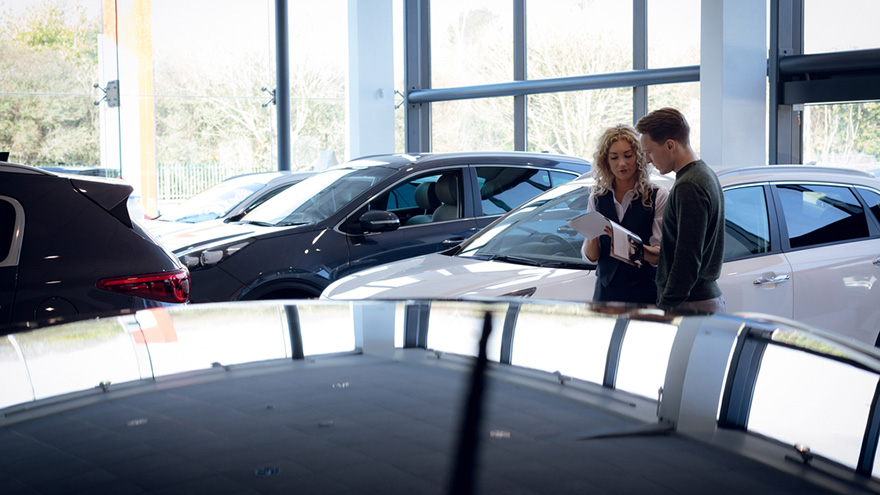Here’s what 86 percent of shoppers think of your retail price

By subscribing, you agree to receive communications from Auto Remarketing and our partners in accordance with our Privacy Policy. We may share your information with select partners and sponsors who may contact you about their products and services. You may unsubscribe at any time.
SAN FRANCISCO –
Perhaps not surprising to dealership managers and salespeople, consumers are walking into showrooms ready for conflict.
Over what?
It's the retail price of that vehicle that might already be jeopardy of generating little margin — or worse — a potential net loss while also creating an anchor on the store floorplan.
More details from the latest study by Jumpstart Automotive Media and Ipsos surfaced this week indicating that full 86 percent of consumers already have a price in mind for the vehicle they want before visiting the dealer to test drive or purchase. This insight is courtesy of the study title, “Today’s Auto Buyer and the Digital Retailing Experience.”
As mentioned in a previous report from Auto Remarketing, 81 percent of consumers don’t believe a dealer’s “lowest price” and still expect to be able to negotiate savings of a few hundred to a few thousand dollars. At the same time, the study pointed out that customers may not understand how vehicles are priced, which can lead to distrust and frustration on the dealer’s part.
For example, there are often questions around whether the dealer or the manufacturer sets the price, what costs are built into that price, and what (if any) aspects does the dealer have the ability to negotiate.
Subscribe to Auto Remarketing to stay informed and stay ahead.
By subscribing, you agree to receive communications from Auto Remarketing and our partners in accordance with our Privacy Policy. We may share your information with select partners and sponsors who may contact you about their products and services. You may unsubscribe at any time.
“Consumers believe that dealers are making a large profit, while dealers today are saying that they don’t make money until they hit volume goals, which are often a challenge to reach,” Jumpstart said.
Part of the challenge consumers feel comes from the fact that prices on many new vehicles today are at or near all-time highs. Americans remain attracted to large SUVs and trucks, and even when they’re interested in cars they want fully loaded with features or size and space for versatility.
Approximately 49 percent of consumers say they determine a “fair” price based on what they find on third-party automotive websites, another 31 percent deem a vehicle to come with a fair price if there is a negotiated savings off the sticker.
Despite nine out of 10 consumers having at least some interest in a “no-haggle” model for vehicle buying, most still prefer to negotiate their own deal versus other ways of settling on a price.
And, even though most agree that the sales process takes too long, they’re still willing to spend a half hour or longer bargaining to save even $100.
What’s more, a consumer’s desire to negotiate their own deal versus the no-haggling approach has more to do with a lack of trust with dealership pricing than a desire to bargain.
Lastly, 68 percent of consumers say they would prefer to deal with a non-commissioned salesperson at a dealership.
“The cat-and-mouse game of pricing and negotiation at the dealership won’t be fully satisfied any time soon,” said Libby Murad-Patel, vice president marketing and strategic insights for Jumpstart. “However, finding a true understanding of what each side is looking for will ultimately help in reducing the friction and adversarial nature when it comes down to vehicle pricing.
“Consumers can’t demand a no-haggle deal but ultimately want to try and save a few bucks, and dealers need to help consumers better understand how they arrived at a certain price point to build more trust,” Murad-Patel continued.
To access the complete report, go to this website.
Murad-Patel also was a part of a recent episode of the Auto Remarketing Podcast, talking about the intricacies of consumer interest in crossovers and SUVs and how those are reflected in the used-car market.
Plus, she explained the opportunities the auto industry has with "influencer marketing" and the best strategies to take advantage.
The full discussion can be found below.


